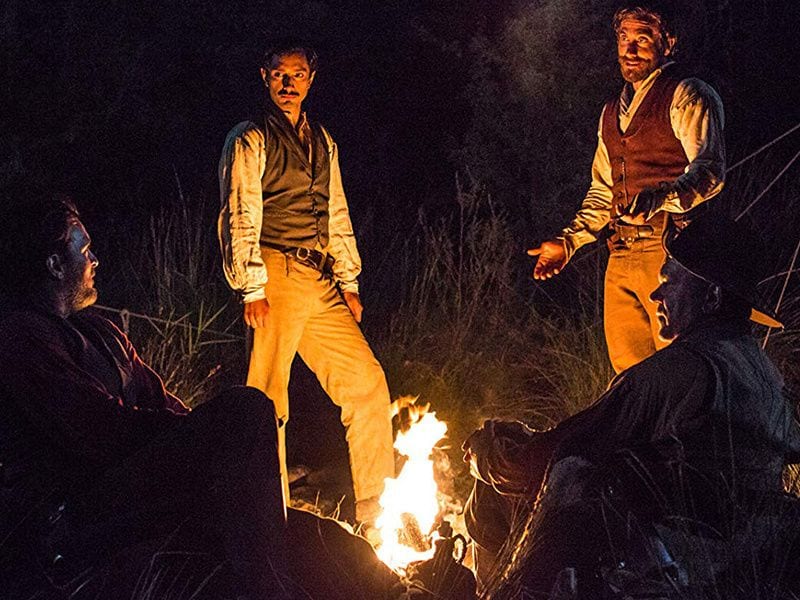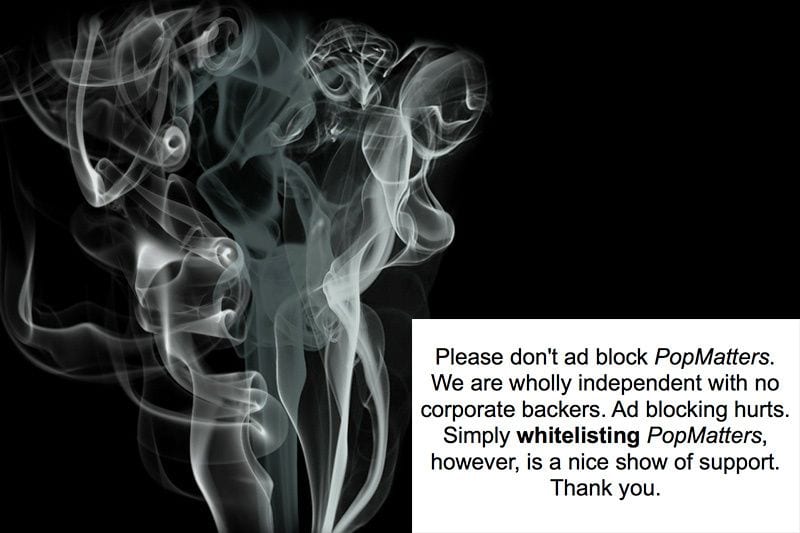
Offbeat, deliberate, defiantly subversive, The Sisters Brothers embraces the Western genre while simultaneously dismantling most of its conventions. Brilliant performances help transform these violent men of questionable moral fiber into complex characters vying for redemption. Though it labors to find a resolution, director Jacques Audiard’s revisionist yarn serves as a quiet reminder that our bonds of blood and hope may still yet overcome evil.
There’s nary a father to be found in The Sisters Brothers. Ironically, whether it’s the deeds they inspire or the lengths theirs sons will go to escape their shadow, the entire story is driven by the fists of unseen fathers. They raised hardened survivors with damaged souls; the kind of damaged soul that finds a home in the godless outskirts of 1850s Oregon.
Civilization encroaches on every front. Where there were once tents there are now houses, and those houses are already being replaced by general stores. None of this matters to the Sisters Brothers, of course. That would be older brother Eli Sister (John C. Reilly) and his reckless younger brother Charlie (Joaquin Phoenix) at your service. The Sisters kill people – that’s their job. defiantly subversive, and with an anachronistic soundtrack, The Sisters Brothers embraces the Western genre while simultaneously dismantling most of its conventions. Brilliant performances help transform these violent men of questionable moral fiber into complex characters vying for redemption. Though it labors to find a resolution, director Jacques Audiard’s revisionist yarn serves as a quiet reminder that our bonds of blood and hope may still yet overcome evil.
It’s a job perfectly suited for Charlie, who delights in his reputation as a bad man. He loves looking into the eyes of his doomed foes, relishing the moment when they realize the dastardly Charlie Sister is about to unleash hell upon them. Yes, going through life with a pistol in his right hand a whiskey bottle in his left would be just fine with Charlie.
Eli, however, is beginning to have his doubts. He doesn’t enjoy emulating the evil of their father; a monstrous drunk who abused them mercilessly. There’s a girl back home that he fancies. He carries her neatly folded perfume-scented shawl everywhere he goes, breathing her scent deep into his lungs before he lays down to sleep. He’s even started using one of those newfangled toothbrushes!
Their employer and surrogate father, The Commodore (Rutger Hauer), tasks them with meeting an expert scout named John Morris (Jake Gyllenhaal) who has located a particular man of interest. Morris will then hand this man over to the Sisters Brothers for further… processing. It’s a job these ruthless men can finish in their sleep and will have forgotten by breakfast.
Based on Patrick deWitt‘s 2011 novel of the same name (Ecco Press), The Sisters Brothers begins like a traditional Western. Our heroes start on a quest to bring down the evildoers, with the promise of many exciting shootouts along the way. There are majestic vistas, saloons teeming with gamblers and prostitutes, and plenty of antagonistic banter between the seemingly mismatched brothers.
That’s pretty much where the comparisons to classic Westerns end. Director Jacques Audiard (DheepanDheepan, 2015) is more interested in moral quandaries by the campfire than shootouts in the public square. Most of the big shootouts in The Sisters Brothers happen at night or completely off screen. In fact, the film’s two most anticipated showdowns are resolved with surprisingly little violence.
Most of the contemplation on good and evil doesn’t occur between the Sisters Brothers, but with Morris and his prisoner, one Hermann Kermit Warm (Riz Ahmed). With a name so apt that it’s positively Dickensian, Warm engages Morris not as an adversary (even after Morris’s nefarious intentions are revealed), but as an equal. The two men ride to San Francisco, exchanging their hopes and fears, most of which were inspired by their respective fathers.
Warm dedicated his life to science as a loving monument to his father. He wants to use his knowledge to improve society… and find a butt-ton of gold. This bookish, soft-spoken fellow dreams like a king, envisioning a community based upon cooperation and spiritual enlightenment… and a butt-ton of gold.
It all sounds like a fantasy to Morris, whose overwhelming disgust for his father has driven him into the isolation of his own mind. Foppish in dress and exacting in speech, Morris jots his thoughts into a dusty old journal. Hearing him issue snooty commands like “make haste”, or casually use words like “precipitate”, it’s easy to imagine the only sin Morris’s father ever committed was not measuring up to his son’s intellectual standards.
“My life is like an empty cylinder,” Morris laments in a moment of heartbreaking reflection. It’s the moment you realize that your judgments about heroes and villains won’t help navigate this swamp. Do the Sisters Brothers deserve redemption? Are they heroes or villains? Will they do the right thing when they finally catch up to Morris and Warm? These aren’t the sorts of questions you should be asking yourself during a Western, and yet Audiard infuses nearly every scene with an opportunity for heroes to be damned and villains to be redeemed.
Helping him in this task is a quartet of amazing performances. The thoughtfulness of Gyllenhaal and Ahmed feels misplaced in a Western milieu until you realize these are the types of men who have stared down irrationality and evil through the eons. Phoenix’s Charlie is always on the brink of coming unhinged, but you never feel him pushing for the spotlight.
That spotlight belongs to the great John C. Reilly and he completely owns this film. Reilly has always been a lovable presence, but here he inhabits a man who can barely stand himself. His eyes convey that Eli is well aware he must escape this life, but not at the expense of abandoning his self-destructive brother. You hear that devotion in every tortured plea for Charlie to stop drinking, and see it in the simplest of gestures, as when he lovingly cuts Charlie’s hair. It’s a masterful performance full of yearning, humor, and regret.
As is often the case with movies involving long quests, the conclusion of The Sisters Brothers feels anti-climactic. Some of that is a conscious decision by Audiard to further his redemptive themes, as well as to subvert our expectations of a big gunfight at the O.K. Corral. Some of it is pacing, however, which is a direct result of an unnecessarily extended denouement.
That’s a small quibble for such a distinguished film. This is challenging, rugged stuff that trusts the audience to be patient and have an open mind. There have been some wonderful revisionist Westerns made since Clint Eastwood’s 1992 masterpiece Unforgiven, S. Craig Zahler’s 2015 Bone Tomahawk, and Scott Cooper‘s 2017 Hostiles are recent examples). The Sisters Brothers is deserving of a spot near the top.




